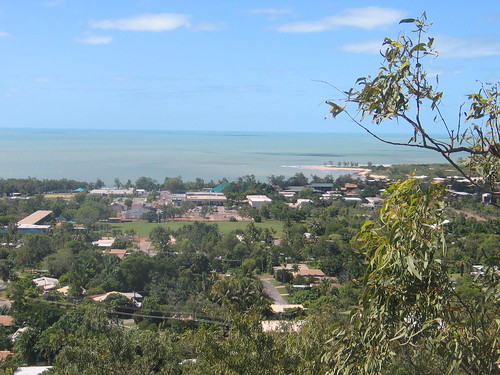Covid Inquiry: Michael Gove denies playing politics during pandemic
Gove #Gove

Michael Gove has rejected suggestions the UK government was “playing politics” during the pandemic.
He also denied attempting to promote the union in the course of his evidence to the UK Covid Inquiry.
It came as the levelling up secretary and former Cabinet Office minister accused Nicola Sturgeon of seeking to diverge from the UK government to advance her “political agenda”.
The ex-first minister is due to give evidence to the inquiry on Thursday.
Mr Gove said he did not accept the relationship between Westminster and Holyrood was “dysfunctional”, but he suggested that some Scottish government ministers were more “constructive” than Ms Sturgeon.
And he said there was “irritation” at Downing Street at her decision to ban large gatherings in Scotland in March 2020.
The Covid inquiry session in Edinburgh also heard evidence about former prime minister Boris Johnson’s trip to Orkney in July 2020.
Mr Gove, who served as Conservative Cabinet Office minister from January 2020 until September 2021, said Ms Sturgeon had not wanted to meet with Mr Johnson during the visit.
In written evidence, he said the pair were “not soulmates”. He told the inquiry that description was an understatement but they were able to “secure pretty effective coordination of substantive policy”.
The inquiry was shown a tweet by Ms Sturgeon in which she said the prime minister’s presence “highlights” one of the key arguments for independence.
During that visit, Mr Johnson talked about the “sheer might and merit” of the union.
Asked by lead counsel Jamie Dawson KC whether this indicated that the UK and Scottish government’s were “playing politics”, Mr Gove replied: “I do not believe that’s true of the UK government.”
Michael Gove served as Cabinet Office minister during the pandemic
The inquiry was shown a Cabinet Office briefing paper written by Mr Gove ahead of Mr Johnson’s trip.
It reported that polling that found 27% of Scots thought the UK government was putting the right Covid measures in place, whereas 70% thought the Scottish government was doing the right thing.
The risk to the future of the union was described in the paper as the “greatest challenge” facing the UK government other than the pandemic.
It added: “Unfortunately it is in no way lessened by the parallel demands of the epidemic and our economic recovery.”
It said that in the lead up to the Scottish elections the following May, “protecting and strengthening the union must be a cornerstone of all that we do”.
However, Mr Gove denied that the purpose of the prime minister’s trip had been to promote the union.
The relationship between Boris Johnson and Nicola Sturgeon has come under the microscope of the UK Covid Inquiry
Asked by Mr Dawson if his “constantly referring” to the UK vaccine rollout during the evidence session was an attempt to promote the union, Mr Gove said: “No.”
He said the UK government’s response was “significant and helpful”, pointing to loan schemes, furlough and PPE procurement.
Mr Gove said it was his responsibility as a minister to “uphold the United Kingdom”.
He said being “passive” in the face of an attempt to break up the UK would be “to quit the field when there is a direct danger to the wellbeing of every citizen of the United Kingdom”.
‘Good old-fashioned rammy’
Earlier in the session, Mr Gove brought up evidence provided last week by Nicola Sturgeon’s former chief of staff, Liz Lloyd.
In WhatsApp messages from November 2020, she told Ms Sturgeon that she wanted a “good old-fashioned rammy” with the UK government over Holyrood’s call for furlough to be extended.
Mr Gove told the inquiry the comments suggested a “search for political conflict” rather than a divergence in policy.
He also said the language suggested the Scottish government was pursuing “differentiation for the sake of advancing a political agenda”.
Mr Gove praised Ms Sturgeon’s “energy and hard work” during the pandemic, but said “the SNP is a political movement with a clear goal.”
He added: “Its members and leadership have seldom missed an opportunity in other times to seek differentiation to advance their cause.”
Mr Gove said UK government ministers, had a responsibility to believe in the integrity of the UK as “a matter of duty”.
However, he denied there was a “completely dysfunctional relationship” with the Scottish government.
He said: “I don’t believe that they are politically motivated in everything that they do.
Mr Gove picked out former Scottish finance secretary and SNP leadership contender Kate Forbes as someone who would avoid “political point making” during the pandemic.
“There were people in the Scottish government who were sometimes much more constructive than one or two others,” he told the inquiry.
He also said former health secretary Jeane Freeman and her successor Humza Yousaf – who went on to become first minister – were “very straightforward”, and praised ex-deputy first minister John Swinney as “very professional”.
However, on Ms Sturgeon, he said she was “undoubtedly a focused and disciplined minister” but said there was sometimes a “political complexion to some of the points she chose to make”.